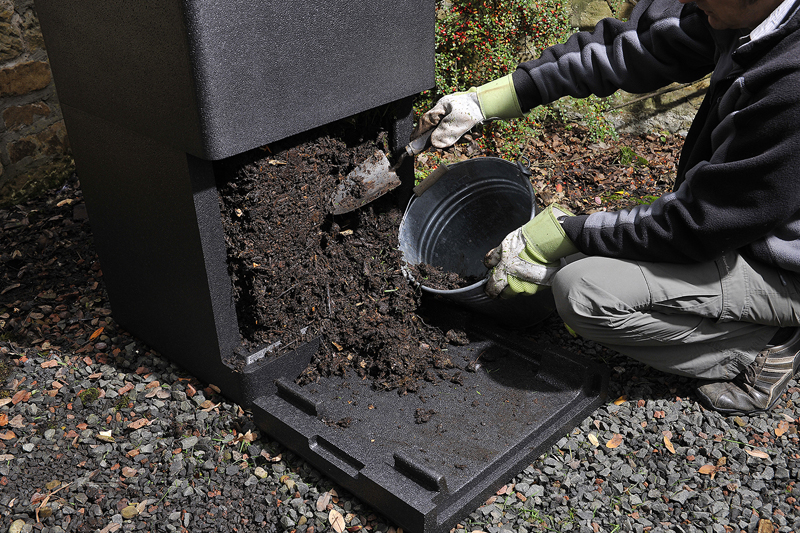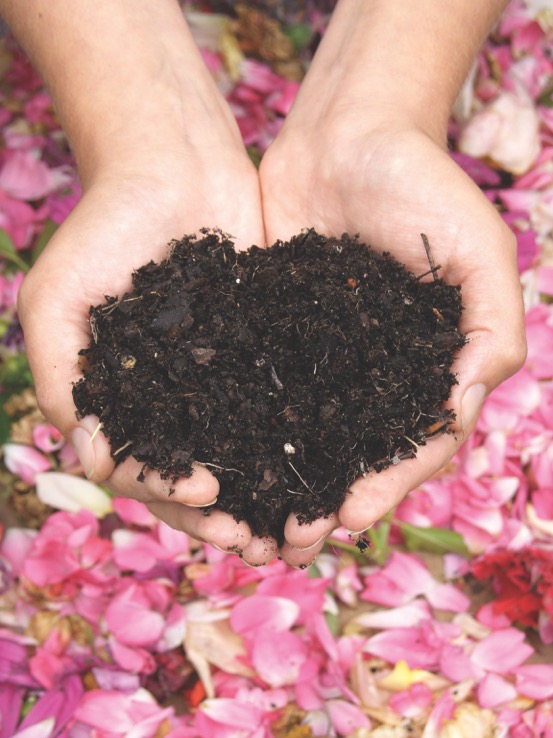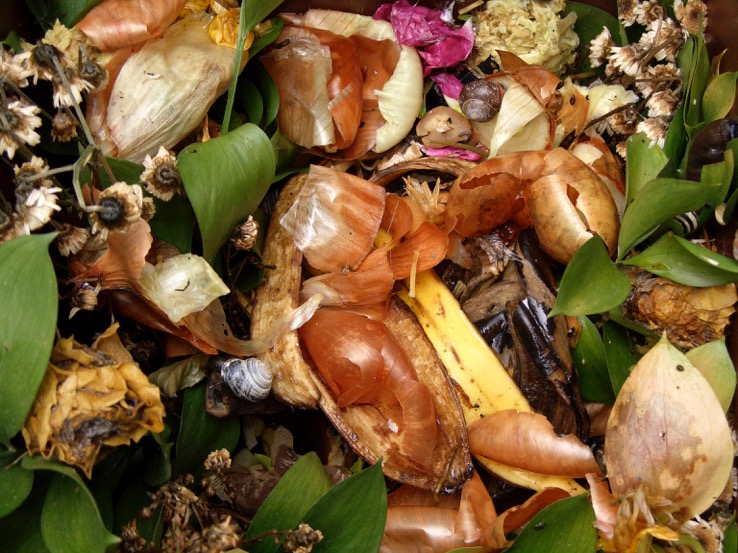
There’s a lot of unnecessary myth and magic about making garden compost says Jean Vernon
First let’s unravel the confusion between the compost that you buy in bags for container plants and growing seeds. This, the trade, is called growing medium and is basically specially formulated to a precise recipe with a variety of ingredients, including plant fertilisers, organic matter (sometimes peat) and loam. It’s designed to grow your plants well and is usually sterilized and free from weed seeds and problems.
When it comes to bought compost, generally you get what you pay for. I.e. don’t cut corners, you are investing in your plants and gardens and fresh, top quality compost will give you the very best results.
Confusingly we also call the material that we make from kitchen and garden waste compost. And while it can of course be used to pot up plants, it is a completely different material and might be better described as soil conditioner.
The ultimate in recycling
First the formulation is always unique depending on what you compost to make it. And it may or may not contain weed seeds and even some plant diseases, again dependent on its ingredients. That said there is a huge amount of satisfaction from turning a pile of garden waste, kitchen peelings and chicken house bedding into a nutrient rich material that will feed your soil. It truly is the very best way to recycle, harnessing nature’s army of microbes and mini beasts to turn natural waste material into gold.
How do I make garden compost?

There are many ways to make garden compost and basically it depends on the accelerator that you use and the container that you make it in.
You can make a compost heap in the garden and simply pile up your grass cuttings, garden and kitchen waste to break down but there are many reasons why this is not the best way to do it.
Instead it is better to contain the compost in some way and a compost bin is one way to do this.
Like most things compost bins come in many shapes and sizes. Choosing the right one does depend on the amount of waste your kitchen and garden produces and the space you have to deal with it.
To make general garden compost you need to harness the power of the microbes and garden beasties and to do this you need to feed them. That’s easy because the very materials you want to compost are in fact the food. And just as we like a range of different food on our plates, the balanced diet for our composting friends is organic material such as leaves, peelings and grass clippings, these are the ‘wet’ ingredients, and woody shredding’s, cardboard, paper and dry leaves are the ‘dry’ materials. To get the balance right you need to cover your compost with a lid of some sort to stop the rain soaking it all, layer the wet and dry ingredients like a lasagne and place the compost bin over the open ground to allow excess moisture to drain away. This also allows the soil microbes and mini beasts to enter the mix and start to work.
If you want to turbo boost your compost process you can do three things.
1 Add an accelerator; this is something very rich in nitrogen that will feed the microbes and help them to work faster. It could be nettle or comfrey tea or even urine.
2 Insulate your compost bin, or choose an insulated design such as the HotBin (https://www.hotbincomposting.com/), this will help retain the heat created from the composting, really speed up the process and help to kill off any pests or diseases in your mix.
3 Add a bucket full of successful compost to the mix. If you’ve got an existing bin of ready-made compost, then take a bucket full of the rich contents at the centre and add it to your new mix. By doing this you are inoculating your fresh batch with millions of the healthy microbes that are needed.
Small scale composting

If you don’t have masses of garden waste and want something that will break down your kitchen peelings and a little garden waste then consider a worm bin. You can add the waste in small amounts to feed the worms and in return they will create a fabulous nutrient rich worm cast material that will feed your plants and the soil. You can buy this ‘black gold’ at huge cost, because it is incredibly rich and because the worms work slowly.
Alternatively consider Bokashi composting, which is carried out in a sealed bucket. You add small amounts of waste with a handful of bran that contains the microorganisms needed to digest your waste. It can even cope with small bones and cooked meat and fish. It ‘pickles’ the waste without emitting smells and then it can be added to the garden soil. Look out for a new Bokashi bin from Hozelock this spring. https://www.hozelock.com


